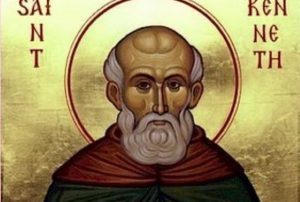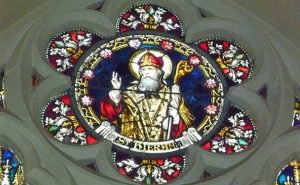 Humans
Humans  Humans
Humans  Gaming
Gaming 10 Overused Game Villains
 Mysteries
Mysteries Ten Mysterious “Ghost Ship” Stories That Still Keep Us Wondering
 Technology
Technology 10 Times AI Replaced Humans (and No One Noticed)
 Politics
Politics 10 Dreaded Despots Who Met Untimely Deaths
 Pop Culture
Pop Culture 10 Celebs Who Have Surprisingly Wanted to Be on Reality TV
 Creepy
Creepy 10 of the Strangest Popular Creepypastas
 Animals
Animals 10 Animals That Used to Be Bigger
 Our World
Our World 10 American Cities, Towns & Villages That Are Unlike Any Other
 Movies and TV
Movies and TV 10 Huge Movies Almost Made by Other Directors
 Humans
Humans 10 Real Life Versions of Famous Superheroes
 Gaming
Gaming 10 Overused Game Villains
 Mysteries
Mysteries Ten Mysterious “Ghost Ship” Stories That Still Keep Us Wondering
Who's Behind Listverse?

Jamie Frater
Head Editor
Jamie founded Listverse due to an insatiable desire to share fascinating, obscure, and bizarre facts. He has been a guest speaker on numerous national radio and television stations and is a five time published author.
More About Us Technology
Technology 10 Times AI Replaced Humans (and No One Noticed)
 Politics
Politics 10 Dreaded Despots Who Met Untimely Deaths
 Pop Culture
Pop Culture 10 Celebs Who Have Surprisingly Wanted to Be on Reality TV
 Creepy
Creepy 10 of the Strangest Popular Creepypastas
 Animals
Animals 10 Animals That Used to Be Bigger
 Our World
Our World 10 American Cities, Towns & Villages That Are Unlike Any Other
 Movies and TV
Movies and TV 10 Huge Movies Almost Made by Other Directors
10 Catholic Histories That Reveal Acceptance of Abortion and Contraception
In today’s heated debates on sexual and reproductive health, the Catholic Church is perhaps the biggest and most powerful pro-life advocate.
The Catechism of the Catholic Church says, “Since the first century, the Church has affirmed the moral evil of every procured abortion. This teaching has not changed and remains unchangeable. Direct abortion, that is to say, abortion willed either as an end or a means, is gravely contrary to the moral law.”
The Church also maintains a strict position on the use of contraceptives, even for married couples. In 1968, Pope Paul VI issued his foundational document, Humanae Vitae, which banned the use of artificial contraceptives by Catholics, which still stands today. The pope labeled contraceptives as “so intrinsically wrong” and declared that a husband and wife “are not free to act as they choose in the service of transmitting life.”
Despite such adamant positions on reproductive health, the Church has canonized and venerated many of its own who have either performed or contradicted these statements. These are ten stories of saints, popes, or others who have shown favor toward abortions or contraceptives.
Related: 10 Things You’re Probably Getting Wrong About Major Religions
10 Pope John XXIII
In the 1960s, a new wave of feminism was flooding mainstream culture. One aspect that helped women take hold of their autonomy was “the pill,” introduced at the start of the decade.
As a result of both cultural and medical evolutions, the Catholic Church was forced to address its own moral law. In 1963, Pope John Paul XXIII was open to change. He organized the Papal Commission on Population, the Family, and Birth Control. By the end of the council’s three-year existence, it grew to consist of theologians, psychologists, laymen, and married couples, among others. Of the 72 members, only four opposed contraceptive reform. The other 68 were in favor of a relaxed stance.
This did not matter, though. Unfortunately, Pope John XXIII died before he could see this vote cast. Had he lived to see it through, Pope Paul VI may never have issued his unwavering stance on contraceptives.[1]
9 St. Hildegard
Hildegard von Bingen was a German nun, musician, poet, philosopher, and medical practitioner. She is a patron saint of musicians and writers, as well as a “doctor of the church,” thanks to her thorough scientific texts on medicine.
One of those medical texts contains remedies for abortions. Hildegard wrote about several herbs that could be used to induce an abortion or stimulate a woman’s period. This included asarum (wild ginger), farn, feverfew, mullein, oleaster, rifelbere, tansy, white hellebore, yarrow, and yue.
When describing the plant asarum, she assures that “a pregnant woman will eat it, either on account, she languishes, or she aborts an infant…” There is another entry in Physica and Causae et Curae that describes a bath that can help with “retention of the menses” or even inducing an abortion, thanks to the use of mullein in the prescription.
It is unknown whether the holy woman ever performed these procedures herself. Still, such detailed records indicate that Hildegard had compassion and allowance for such practices.[2]
8 Pope John Paul I
Pope John Paul I was elected pope in 1978, succeeding Pope John XXIII and Pope Paul VI. Before he became the leader of the Catholic Church, he was Bishop Albino Luciani.He had his own opinions about artificial birth control, which opposed Paul VI and his Humanae Vitae.
While debates were ensuing within the Church about its stance on birth control, Luciani expressed his hopes for a “liberalizing” change from Paul VI. In his opinion, the matter of contraception was the most important one to ever face the Church because it was something all Catholics could directly be affected by, unlike higher-level theology and philosophy.
For Bishop Luciani, the Catholic Church should have made allowances for contraceptives. He argued that birth control would allow families to “distance one birth from another, to give rest to the mother, and to think of the good of children already born, or to be born.”
However, despite his views, he accepted the final decision to prohibit all forms of contraception.[3]
7 St. Antoninus
Many pro-choice Catholics use the name of St. Antoninus to validate their viewpoints. Headlines like “The Patron Saint of Pro-Choice Catholics” can be found online, followed by staunch arguments for early-term abortions.
So many look to the Dominican saint as their mascot because of his fifteenth-century writings on the medical procedure. The “brilliant theologian and popular preacher,” as the pope at the time of his death declared, vouched for early abortions if the mother’s or child’s health were in danger.
Given that Antoninus was canonized only 64 years after his death, the Church must not have had any issue with the life and teachings of the man, even on this position of abortion.[4]
6 St. Thomas Aquinas
Philosopher and theologian St. Thomas Aquinas is considered one of the most profound minds in Christian scholarship. He is the patron saint of universities and schools, thanks to his extensive writings, teachings, and the positions held in his life.
His lofty reputation within the Church gives his writings great weight. One topic St. Thomas Aquinas wrote about was ensoulment, or when a fetus gets its soul. He concluded that the fetus does not get a true human soul until sixty to eighty days after fertilization, which is just shy of the first trimester. He then goes on in his writings to declare that killing anything with a “human soul” is considered homicide.
Therefore, it would make sense that terminating pregnancy before human ensoulment would not be murder. While the saint himself never explicitly made these declarations, it is this line of thinking that has fueled the arguments of pro-choice Catholics everywhere.[5]
5 St. Cainnech of Aghaboe

Ireland is home to several Catholic saints, and among their miracles are a few recorded abortions. One of those saints is Cainech. Also known as Canice or Kenneth, this saint lived in sixth-century Ireland. He served as a priest, poet, and theologian and built several monasteries across Ireland and Scotland. He is perhaps best known for his conversion of the Picts, an indigenous group in the Celtic lands. However, among his work is also a documented abortion.
There is an account of St. Cainnech “[blessing] the belly” of a nun who came with a child after having a secret affair. While not much further is known about this particular miracle, it is one of a handful of recorded abortions in medieval Irish history.[6]
4 St. Áed mac Bricc
Áed lived in sixth-century Ireland, a contemporary of Cainnech. He is known in the Catholic Church for his dedication as a bishop, founding at least one religious community, and performing miracles. His most famous miracle is curing St. Brigid of a headache, which led to him being called upon by those who suffer from such afflictions.
The most controversial miracle recorded in his biographies is that of an abortion. According to the story, a nun under his supervision was pregnant. Once she confessed and repented for her sin, he miraculously removed the infant from her womb.[7]
3 St. Ciarán (Kieran) of Saigir

Considered the “firstborn of the Irish saints,” Ciarán of Saigir lived a devout life. It is written that his dedication to the Church began before the arrival of the famed St. Patrick, and his work was thorough. He served as a bishop, missionary, and miracle worker across Ireland and even abroad.
One of his miracles includes the restoration of the virtue of a raped nun named Bruinnech. The account says, “When the man of God returned to the monastery with the girl, she confessed that she was pregnant. Then the man of God, led by the zeal of justice, not wishing the serpent’s seed to quicken, pressed down on her womb with the sign of the cross and forced her womb to be emptied.”[8]
2 St. Brigid of Kildare
The most famous saint on record for performing an abortion is the beloved St. Brigid. Her associations are tangled with the Celtic goddess of the same name, including patronage of poetry, nature, craftsmanship, and Ireland herself. Despite such grand associations, the story of the saint is more humble. She worked as an abbess and, in her years there, performed several saintly miracles, according to her biography written by Cogitosus.
Her miracles include converting water into beer, healing the sick, and magically making her cloak acres large so that she could build her monastery on “as much land as her cloak could cover,” as ordered by the king.
In this same account of miracles by Cogitosus is that of an abortion she performed. One of her nuns was with child, and Brigid relieved the woman of her pregnancy, “causing the foetus to disappear without coming to birth and without pain.”[9]
1 Dorothy Day
Not yet a saint, American political activist Dorothy Day is the quintessential example of a conflicted Catholic when it comes to the issue of abortion. Before she became a steward for the Catholic Church, she endured several heartbreaking trials, including having an abortion. When she was 22 years old, her partner, a journalist, pressured her to abort their child, and she agreed.
However, it was a decision that did not rest easily with her. She attempted suicide twice and was certain that God would punish her by rendering her infertile. Eventually, she married, had a daughter she loved, and began dedicating herself to the Catholic faith and human rights.
While Day’s stance on abortion was certainly not favorable, she did show up with the utmost compassion and understanding for the complexity of the issue in ways that many Catholics did not or could not. This makes her a powerful and relatable figure for those with complicated feelings about the issue.[10]








